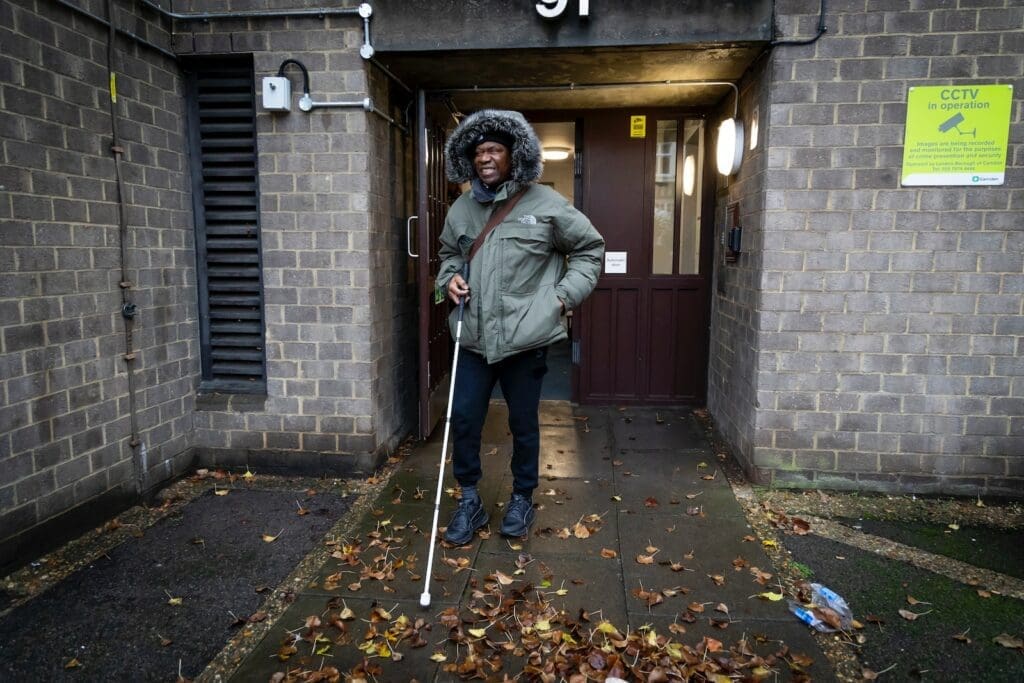
Traveling is a rewarding experience that can enrich one’s life in many ways. However, for seniors with mobility issues, traveling can present a unique set of challenges. Fortunately, there are many travel destinations that cater specifically to seniors with mobility issues, making it possible for them to enjoy all the benefits of travel without sacrificing their comfort or safety.
When planning a trip, seniors with mobility issues should consider destinations that offer accessibility features and services, such as wheelchair-friendly tourist sites and national parks. They should also prioritize mobility-friendly accommodations and transportation, such as hotels and rental cars that offer wheelchair accessibility. Additionally, seniors with mobility issues should research destinations that offer guided tours, cruises, and resort stays that cater to their specific needs.
Overall, seniors with mobility issues should not let their physical limitations prevent them from experiencing the joys of travel. With careful planning and research, they can find travel destinations that cater to their specific needs and allow them to explore the world in comfort and safety. Whether they choose to embark on a guided tour, take a cruise, or simply visit a wheelchair-friendly tourist site, there are many travel options available that can provide seniors with mobility issues with a truly unforgettable experience.
Understanding Mobility Issues in Senior Citizens
As people age, they may experience mobility issues that can make traveling more challenging. Mobility issues can range from minor discomfort to significant disabilities that require special accommodations. Senior citizens with limited mobility may require extra planning and preparation to ensure they can enjoy their travel experiences to the fullest.
Some common mobility issues that senior citizens may experience include:
- Arthritis: A condition that causes joint pain and stiffness, making it difficult to move around.
- Osteoporosis: A condition that causes bones to become weak and brittle, increasing the risk of falls and fractures.
- Parkinson’s disease: A progressive disorder that affects movement and coordination, making it difficult to walk and maintain balance.
- Stroke: A medical emergency that can cause paralysis or weakness on one side of the body, making it difficult to move around.
- Vision loss: A condition that can make it challenging to navigate unfamiliar environments.
People with disabilities may also experience mobility challenges that require special accommodations. These accommodations may include wheelchair-accessible transportation, mobility aids, and accessible accommodations.
To ensure a comfortable and enjoyable travel experience, it is essential to plan ahead and research destinations that offer accessible accommodations and transportation. Senior citizens with limited mobility should also consider packing mobility aids such as canes, walkers, or wheelchairs to make getting around easier.
Overall, understanding mobility issues in senior citizens is essential for planning successful travel experiences. By taking the time to research accessible destinations and accommodations, senior citizens with limited mobility can enjoy travel experiences to the fullest.
Preparation for Accessible Travel
Traveling can be an exciting and enriching experience, but for seniors with mobility issues, it can also be challenging. However, with proper preparation, accessible travel can be a reality. Here are some things to consider before embarking on a trip.
Accessible Travel
When planning a trip, it is important to research and choose destinations and accommodations that are accessible. Many hotels and resorts offer accessible rooms with features such as grab bars, roll-in showers, and lower countertops. Some vacation rental properties may also have accessible features, such as ramps and wider doorways.
Travel Insurance
Seniors with pre-existing conditions should consider purchasing travel insurance to cover any unexpected medical expenses that may arise during their trip. It is important to read the policy carefully to ensure that it covers pre-existing conditions and any other specific needs.
Mobility Aids
Seniors with mobility issues may need to bring their own mobility aids, such as walkers, canes, or wheelchairs. It is important to check with airlines and transportation providers to ensure that these aids are allowed and to make any necessary arrangements.
Grab Bars
Some seniors may require grab bars in bathrooms or other areas to assist with mobility. Portable grab bars can be purchased and brought on the trip, or some hotels and rental properties may provide them upon request.
Accessible Transportation Options
When planning transportation, seniors with mobility issues should consider accessible options, such as taxis with wheelchair ramps or accessible public transportation. It is important to research transportation options in advance and make any necessary reservations.
Fitness and Yoga
Seniors with mobility issues can benefit from staying active during their trip. Many hotels and resorts offer fitness facilities and yoga classes that are accessible for seniors with mobility issues. It is important to check with the facility in advance to ensure that they have appropriate accommodations.
Overall, with proper preparation and research, accessible travel can be a reality for seniors with mobility issues. By considering the above factors, seniors can enjoy a safe and enriching travel experience.
Accessible Accommodations for Seniors
When planning a trip, finding the right accommodations is essential for a comfortable and enjoyable stay. For seniors with limited mobility, it is important to find accessible accommodations that cater to their needs.
Many hotels and resorts offer accessible rooms with features such as wider doorways, grab bars, roll-in showers, and lower countertops. Some even provide additional amenities such as pool lifts and beach wheelchairs. It is important to check with the hotel or resort beforehand to ensure that the accessible room meets the specific needs of the senior traveler.
For those who prefer a more homely environment, vacation rentals such as apartments and villas can also provide accessible accommodations. Websites such as Airbnb and HomeAway offer search filters for accessible accommodations, making it easier to find a suitable rental.
Cruise ships are also a popular option for seniors with mobility issues. Many cruise lines offer accessible staterooms with features such as wider doorways, roll-in showers, and grab bars. Some ships even have accessible tender boats to transport passengers to and from shore.
Overall, finding accessible accommodations for seniors with limited mobility is becoming easier as more hotels, resorts, and vacation rentals are recognizing the importance of catering to this demographic. By doing the necessary research and planning ahead, seniors can enjoy a comfortable and stress-free stay during their travels.
Activities for Seniors with Mobility Issues
Seniors with limited mobility can still enjoy a wide range of activities while traveling. Many destinations offer wheelchair-accessible options for popular activities like museums, concerts, and live shows. For example, the Kennedy Center in Washington, D.C., provides wheelchair seating and assisted listening devices for their performances.
For those who enjoy the great outdoors, whale watching is a popular activity that can be enjoyed from a boat or on shore. Many tour companies offer accessible boats with ramps and lifts for wheelchair users. In addition, national parks like Yosemite and Yellowstone have accessible trails and paved paths for those with mobility issues to enjoy.
For a more relaxed experience, seniors can take part in guided tours of historic sites or scenic areas. Many tour companies offer accessible transportation and accommodations for those with mobility issues. This is a great way to learn about the local culture and history while enjoying the sights.
Finally, seniors can also take part in activities like painting, cooking classes, or even wine tasting. These activities can be enjoyed indoors and are often wheelchair accessible. Some destinations even offer classes specifically designed for seniors with mobility issues.
Overall, there are plenty of activities for seniors with mobility issues to enjoy while traveling. With a little research and planning, seniors can find accessible options for almost any activity they are interested in.
Choosing Accessible Vacation Destinations
When it comes to choosing vacation destinations for seniors with mobility issues, it is important to do some research in advance to ensure the destination is accessible and accommodating. Here are some tips to keep in mind when choosing an accessible vacation destination:
- Look for destinations that offer wheelchair accessibility, access to elevators, and other accommodations for people with limited mobility. Many cities have accessible public transportation options that can make getting around easier.
- Consider destinations that offer accessible outdoor activities such as hiking trails, beaches with wheelchair access, and parks with paved paths. National parks like Yosemite and Yellowstone offer accessible trails and tours for people with mobility issues.
- Look for destinations that offer accessible accommodations such as hotels and resorts with wheelchair-accessible rooms and bathrooms. Many hotels also offer equipment rentals such as scooters and wheelchairs.
- Consider destinations that offer accessible tours and attractions. Many museums and tourist attractions have accommodations for people with mobility issues such as wheelchair ramps and accessible exhibits.
Some popular accessible vacation destinations for seniors with limited mobility include:
- San Diego, California: Known for its great weather year-round and beautiful beaches, San Diego offers accessible beaches and public transportation options.
- Washington, D.C.: The nation’s capital offers many accessible attractions including the Smithsonian museums and the National Mall.
- Vancouver, Canada: This coastal city offers accessible transportation options and outdoor activities such as Stanley Park with paved paths and wheelchair-accessible beaches.
- Costa Rica: This tropical destination offers accessible tours and attractions such as the Arenal Volcano National Park and the Manuel Antonio National Park with accessible beaches and trails.
- Alaska: Many cruise lines offer accessible cruises to Alaska with accommodations for people with mobility issues and accessible tours of glaciers and wildlife.
By doing some research in advance and choosing an accessible vacation destination, seniors with mobility issues can enjoy a stress-free and enjoyable vacation experience.
Exploring Accessible Beach Destinations
For seniors with mobility issues, finding accessible beach destinations can be a challenge. However, there are many beaches that offer accessibility features such as beach wheelchairs, boardwalks, and ramps. Here are some accessible beach destinations that seniors with limited mobility can explore:
Florida
Florida is known for its beautiful beaches, and many of them are accessible for seniors with mobility issues. Miami Beach, for example, has a beach wheelchair program that provides free beach wheelchairs to visitors. Daytona Beach also has beach wheelchairs available for rent, as well as a boardwalk that is wheelchair accessible.
Hawaii
Hawaii is another great destination for seniors with mobility issues. Many of the beaches in Hawaii have beach wheelchairs available for rent, and some even have accessible restrooms and showers. One example is Waikiki Beach, which has a beach wheelchair program and accessible restrooms and showers.
Other Accessible Beach Destinations
In addition to Florida and Hawaii, there are many other accessible beach destinations that seniors with mobility issues can explore. Some examples include:
- Virginia Beach, Virginia: This beach has a boardwalk that is wheelchair accessible, as well as beach wheelchairs available for rent.
- Santa Monica Beach, California: This beach has a beach wheelchair program and accessible restrooms and showers.
- Myrtle Beach, South Carolina: This beach has a beach wheelchair program and accessible restrooms and showers.
Overall, seniors with mobility issues can still enjoy the beauty of the beach with the help of accessibility features such as beach wheelchairs, boardwalks, and ramps. With so many accessible beach destinations available, seniors can explore the sand and surf with confidence.
Cruise Vacations for Seniors with Mobility Issues
Cruises are an excellent option for seniors with mobility issues who want to travel without too much physical exertion. Cruise lines offer a wide range of amenities and services that cater to the needs of seniors with mobility limitations. These amenities include wheelchair-accessible staterooms, accessible public areas, and shore excursions that are designed to accommodate wheelchair users.
Many cruise lines offer ocean and river cruises that are perfect for seniors with mobility issues. Royal Caribbean’s Symphony of the Seas is one of the best ships for cruisers with disabilities. The ship has wheelchair-accessible staterooms, and all public rooms have entrances with gradual inclines. Additionally, the ship provides airport transfers with lifts to accommodate passengers using wheelchairs and scooters.
Another great option is Alaskan cruises. These cruises offer breathtaking views of glaciers, wildlife, and natural scenery. Many Alaskan cruises have wheelchair-accessible staterooms, and the ships are designed to accommodate passengers with mobility issues. The shore excursions are also designed to be accessible for wheelchair users.
River cruises are also an excellent option for seniors with mobility issues. River cruises offer a more intimate and relaxed experience than ocean cruises. Many river cruise ships have elevators and wheelchair-accessible staterooms. The shore excursions are also designed to be accessible for wheelchair users.
Seniors with mobility issues can also consider boat tours. Boat tours offer a unique way to see the sights and sounds of a destination. Many boat tours have wheelchair-accessible areas, and the tour guides are trained to assist passengers with mobility limitations.
Overall, cruises are an excellent option for seniors with mobility issues who want to travel without too much physical exertion. Cruise lines offer a wide range of amenities and services that cater to the needs of seniors with mobility limitations. Whether you choose an ocean cruise, river cruise, Alaskan cruise, or boat tour, you can rest assured that you will have a memorable and enjoyable experience.
Bus and Train Tours for Seniors
For seniors with limited mobility, bus and train tours can be a great way to see the world. Many companies offer tours specifically designed for seniors, with comfortable seating, accessible facilities, and knowledgeable guides.
Bus tours are a popular option for seniors who prefer to stay on the ground. They offer a comfortable and convenient way to see the sights without having to worry about driving or navigating unfamiliar roads. Many bus tour companies offer accessible tours with wheelchair lifts, ramps, and other accommodations for seniors with mobility issues.
Train trips are another great way to see the world, with scenic routes and comfortable accommodations. Amtrak, the most popular train service in the USA, offers senior discounts and accessible facilities on many of its routes. Seniors can enjoy the scenery and relax in the comfort of their own private compartment, with meals and other amenities included.
Train stations are often equipped with elevators, ramps, and other accommodations for seniors with mobility issues. Many stations also offer assistance for seniors who need help boarding or disembarking from the train.
Overall, bus and train tours can be an excellent choice for seniors with limited mobility who want to see the world. With comfortable seating, accessible facilities, and knowledgeable guides, seniors can enjoy the sights and sounds of their destination without having to worry about the logistics of travel.
Visiting National Parks with Mobility Issues
For seniors with mobility issues, visiting national parks can be a challenge. However, many national parks have made significant efforts to improve accessibility for visitors with disabilities.
One example is Acadia National Park in Maine. The park has a variety of accessible trails, including the Carriage Roads, which are designed for non-motorized use and offer stunning views of the park’s lakes and mountains. The park also offers accessible ranger-led tours and has accessible restrooms and picnic areas.
Yellowstone National Park, located in Wyoming, Montana, and Idaho, has made significant efforts to improve accessibility for visitors with mobility issues. The park has 16 wheelchair-accessible trails, which account for 5.9% of all trails in the park. Additionally, the park has accessible restrooms, campsites, and picnic areas. Visitors with mobility issues can also take advantage of the park’s shuttle service, which is equipped with wheelchair lifts.
Volcanoes National Park in Hawaii has also made significant efforts to improve accessibility for visitors with mobility issues. The park has a variety of accessible trails, including the Kilauea Iki Trail, which offers stunning views of the park’s volcanic landscape. The park also offers accessible ranger-led tours and has accessible restrooms and picnic areas.
When visiting national parks with mobility issues, it is important to plan ahead. Visitors should research the park’s accessibility features and plan their visit accordingly. They should also consider bringing any necessary mobility aids, such as wheelchairs or walkers.
In some cases, visitors with mobility issues may need to use elevators to access certain areas of the park. It is important to note that not all national parks have elevators, so visitors should research the park’s accessibility features before their visit.
Overall, national parks can be a wonderful destination for seniors with mobility issues. With proper planning and research, visitors can enjoy the park’s natural beauty and experience all that it has to offer.
Accessible City Tours
Many seniors with mobility issues love to explore cities and experience their unique culture. Fortunately, there are several cities in the United States that offer accessible city tours. These tours are designed to accommodate seniors with mobility issues so that they can enjoy the sights and sounds of the city without worrying about accessibility.
Las Vegas
Las Vegas is a popular destination for seniors, and the city offers several accessible tours. The Las Vegas Strip is a popular destination for tourists, and seniors can take an accessible tour of the Strip on a mobility scooter or wheelchair. The Mob Museum in downtown Las Vegas also offers accessible tours for seniors with mobility issues.
Washington, D.C.
Washington, D.C. is another popular destination for seniors, and the city offers several accessible tours. Seniors can take an accessible tour of the National Mall, which includes stops at the Lincoln Memorial, the Washington Monument, and the Vietnam Veterans Memorial. The Smithsonian Institution also offers accessible tours for seniors with mobility issues.
San Diego
San Diego is a beautiful city with several accessible tours for seniors with mobility issues. The Old Town Trolley Tours offers an accessible tour of the city that includes stops at the San Diego Zoo, Balboa Park, and the USS Midway Museum. The San Diego Maritime Museum also offers accessible tours for seniors with mobility issues.
Philadelphia
Philadelphia is a historic city with several accessible tours for seniors with mobility issues. The Independence Visitor Center offers an accessible tour of Independence Hall, the Liberty Bell, and other historic landmarks in the city. The Philadelphia Museum of Art also offers accessible tours for seniors with mobility issues.
San Antonio
San Antonio is a popular destination for seniors, and the city offers several accessible tours. The River Walk is a popular destination for tourists, and seniors can take an accessible tour of the River Walk on a mobility scooter or wheelchair. The Alamo also offers accessible tours for seniors with mobility issues.
In conclusion, seniors with mobility issues can still enjoy exploring cities with accessible city tours. Las Vegas, Washington, D.C., San Diego, Philadelphia, and San Antonio are just a few of the cities that offer accessible tours for seniors with mobility issues.
Traveling Abroad with Mobility Issues
Traveling abroad can be a daunting task for seniors with mobility issues. However, with proper planning and research, it is possible to enjoy a vacation overseas. Here are some tips to keep in mind when traveling abroad with mobility issues:
Research Accessibility
Before booking a trip, seniors should research the accessibility of the destination. Some countries, such as Portugal and Spain, have made significant strides in making their cities and attractions accessible to those with mobility issues. In South Africa, many game reserves offer wheelchair-accessible safaris. In India, the Taj Mahal has a wheelchair ramp and accessible restrooms. Amsterdam has a reputation for being a bike-friendly city, but it also has a good public transportation system that accommodates wheelchairs. Switzerland is known for its scenic train rides and many of their trains are wheelchair accessible.
Plan Ahead
Seniors with mobility issues should plan ahead to ensure a smooth trip. This may include booking a hotel room with accessible features such as grab bars, roll-in showers, and wider doorways. It is also important to arrange for transportation that can accommodate wheelchairs, such as accessible taxis or rental cars. Seniors should also research the accessibility of attractions they plan to visit and make arrangements for any necessary accommodations, such as wheelchair rentals.
Pack Smart
When traveling abroad with mobility issues, it is important to pack smart. Seniors should bring any necessary mobility aids, such as canes, walkers, or wheelchairs. It is also a good idea to pack extra medication and medical supplies in case of an emergency. Seniors should also consider packing a lightweight, foldable wheelchair for use in areas where a larger wheelchair may be difficult to maneuver.
Be Prepared
Seniors with mobility issues should be prepared for unexpected challenges. This may include carrying a list of emergency contacts and medical information, as well as a copy of their travel itinerary. Seniors should also be prepared to advocate for themselves and their needs, whether it is requesting a wheelchair at the airport or asking for assistance at a hotel.
Overall, traveling abroad with mobility issues requires careful planning and research. Seniors should take the time to research accessibility, plan ahead, pack smart, and be prepared for unexpected challenges. With the right preparation, seniors can enjoy a fulfilling and memorable vacation overseas.
Historical Sites and Museums
Seniors with limited mobility who love history can still enjoy visiting historical sites and museums. Many of these destinations have made accommodations for those with mobility issues, such as wheelchair ramps and accessible restrooms.
Colonial Williamsburg in Virginia is a popular destination for seniors who want to experience life in 18th-century America. The historical site offers accessible transportation, including shuttle buses and wheelchair rentals. Visitors can explore the town’s historic buildings, watch demonstrations of trades and crafts, and interact with costumed interpreters.
Niagara Falls State Park, located in New York, offers stunning views of the Niagara Falls. The park has accessible walkways, elevators, and ramps to make it easier for seniors with mobility issues to enjoy the falls. The Maid of the Mist boat tour, which takes visitors up close to the falls, is also accessible.
For seniors interested in the Titanic, the Titanic Museum in Pigeon Forge, Tennessee, is a must-see. The museum has made accommodations for those with mobility issues, including an elevator and accessible restrooms. Visitors can learn about the ship’s history, view artifacts recovered from the wreckage, and experience what it was like to be on board the Titanic.
Many historical sites in Virginia, such as Mount Vernon, the home of George Washington, and Patrick Henry’s Scotchtown, have made accommodations for those with mobility issues. These sites offer accessible tours and transportation, as well as accessible restrooms.
Seniors who want to learn about the history of the United States can visit Monticello, the home of Thomas Jefferson, in Virginia. The site has accessible tours and transportation, as well as accessible restrooms. Visitors can explore the house and gardens, view exhibits, and learn about Jefferson’s life and legacy.
Overall, seniors with limited mobility can still enjoy visiting historical sites and museums. Many of these destinations have made accommodations to ensure that everyone can experience the history and culture they have to offer.
Traveling with Hearing Impairments
Traveling can be a daunting experience for seniors with hearing impairments, but with the right preparation, it can be an enjoyable and stress-free experience. Here are a few tips to help seniors with hearing impairments travel with ease:
1. Choose the Right Accommodations
When booking accommodations, seniors with hearing impairments should look for hotels or resorts that offer visual alerts for fire alarms and phones, as well as rooms with visual doorbells and vibrating alarm clocks. Some hotels also offer rooms with special devices that amplify sound, such as telephones and TVs.
2. Pack the Right Equipment
Seniors with hearing impairments should pack any necessary equipment, such as hearing aids, extra batteries, and a portable amplifier. They should also consider bringing a pen and paper to communicate with hotel staff or tour guides who may not be familiar with sign language.
3. Notify Airline and Cruise Staff
Seniors with hearing impairments should notify airline and cruise staff of their condition when booking their tickets. This will allow staff to make any necessary accommodations, such as assigning seats near the front of the plane or providing a sign language interpreter.
4. Research Tour Companies
When booking tours or excursions, seniors with hearing impairments should research tour companies that offer accommodations for those with hearing impairments, such as sign language interpreters or written materials.
5. Be Prepared for Emergencies
Seniors with hearing impairments should always carry a card or document that explains their condition and any special accommodations they may need in case of an emergency. They should also consider wearing a medical alert bracelet or necklace that identifies their hearing impairment.
By following these tips, seniors with hearing impairments can travel with confidence and enjoy all the wonderful experiences that travel has to offer.
Wheelchair Accessibility in Travel
Traveling can be a challenge for seniors with mobility issues, especially for those who use a wheelchair. However, with the right planning and preparation, it is possible to enjoy a comfortable and memorable trip. Here are some tips for wheelchair accessibility in travel:
Choosing a Destination
When choosing a travel destination, it is important to consider the accessibility of the location. Some cities and countries are more wheelchair-friendly than others. For example, some European cities have narrow streets and historic buildings that may not be accessible for wheelchair users. On the other hand, many cities in the United States have made significant progress in providing wheelchair accessibility in public spaces, transportation, and accommodations.
Transportation
Transportation can be a major challenge for wheelchair users, especially when traveling by air. It is important to research the airline’s policies and procedures for wheelchair users before booking a flight. Some airlines provide wheelchair assistance, while others may require passengers to bring their own wheelchair. It is also important to consider the accessibility of transportation options at the destination, such as public transportation and taxis.
Accommodations
When booking accommodations, it is important to ensure that the hotel or rental property is wheelchair accessible. This includes accessible entrances, elevators, and bathrooms. Some hotels may also provide additional accessibility features, such as roll-in showers and grab bars. It is recommended to call the hotel directly to confirm their accessibility features and to make any necessary arrangements.
Activities and Attractions
Many popular tourist attractions and activities may not be accessible for wheelchair users. However, there are many wheelchair-friendly options available, such as museums, parks, and tours. It is important to research the accessibility of the activities and attractions before booking, and to contact the venue directly if necessary to confirm their accessibility features.
Overall, wheelchair accessibility in travel requires careful planning and preparation. By choosing a wheelchair-friendly destination, researching transportation options, booking accessible accommodations, and selecting wheelchair-friendly activities and attractions, seniors with mobility issues can enjoy a comfortable and memorable trip.








